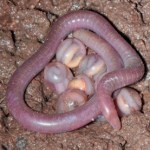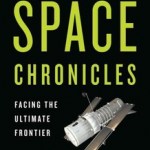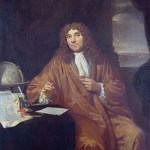Social Sciences
I sense a disturbance in the antivaccine crankosphere.
Actually, maybe "disturbance" is the wrong word. Unabashed whooping it up is closer to correct. High-fiving is perhaps a better term. Or maybe partying like it's 2005. The question, of course, is what is the inciting event was that sparked such widespread rejoicing in the antivaccine world. I'll give you a hint. It has to do with the hero of the antivaccine movement, the man who arguably more than anyone else is responsible for the MMR scare that drove down MMR vaccine uptake in the UK to the point where measles, once vanquished, came…
I was saddened to read that Congressman Donald Payne (D-NJ) died yesterday from colon cancer. Just a month ago, the 77-year old Member of Congress announced he was undergoing treatment for the disease. An estimated 51,700 individuals in the U.S. will die this year from cancers of the colon and rectum.
"I am heartbroken to learn of Congressman Payne's passing," said Congressman George Miller (D-CA) in a statement. The two served together for several years on the House Education and the Workforce Committee. Miller's statement continues:
"Donald served his constituents and this nation…
Image: Proceedings of the Royal Society B
Dr. Biju and colleagues at the University of Delhi have discovered a new family of limbless caecilian amphibians (Gymnophiona) in northern India. Although these soil-dwelling animals look an awful lot like earthworms, genetic testing and comparative analyses of their cranial anatomy show that they are in fact an ancient lineage of amphibians that first appeared ~140 million years ago (early Cretaceous). Unfortunately, they are threatened by human expansion.
The San Diego Zoo has a neat website with more information on this order of amphibian.
If…
Over at HuffPo, paleontologist Robert Asher serves up the standard cliches about reconciling science and religion:
For many theists, even if they would phrase it differently, “religion” requires a deity who leaves behind evidence in a similar fashion as a human being might do, like Santa Claus not finishing his cookies or a toga-clad Charlton Heston dispensing rules on stone tablets, capriciously ignoring his own natural laws. Many anti-theists agree: if God exists, “he” has to leave behind evidence in a human-like fashion. Notably, such a perspective is at the core of the so-called “…
I am getting very excited about the upcoming Experimental Biology conference especially since this year marks the 125th anniversary of The American Physiological Society for which there are many planned celebrations. Not to mention, the programming for comparative physiology at this year's meeting is really exciting:
Comparative and Evolutionary Physiology Section
Distinguished Lecture:
Tuesday, April 24, 2012, 8:00-10:00 AM
James Hicks
August Krogh Distinguished Lectureship of the APS Comparative and Evolutionary Physiology Section
Symposia:
Monday, April 23, 2012, 3:30-5:30 PM
Nina…
Neil deGrasse Tyson has a new book out: Space Chronicles: Facing the Ultimate Frontier. It is (as one might guess) about space exploration, and assembles earlier speeches and writings with some new stuff. This is an interesting time to be talking about the space program, as NASA seems to be producing new results ever week, there are large and small space robots on their way to distant orbs, or soon to be launched, we are on the verge of understanding the potential of life on Mars on a basic level, we are finding more earth-ish Exoplanets and at the same time the sky is falling, or at least…
A little over 300 years ago, Antonie van Leeuwenhoek, a dry goods seller from Delft in Holland, learned to grind glass into lenses and fashion the best microscopes the world had ever seen. In those days, the idea of being a "scientist" as a profession was ludicrous. Natural philosophy was pastime for nobility or at least those with considerable disposable income. Leeuwenhoek was a successful business man, and in his spare time, he pointed his lenses at pond water (among other things). As Paul de Kruif recounted in his brilliant book Microbe Hunters:
[Leeuwenhoek] peeped into a fantastic sub-…
Like many geeks, I enjoy The Big Bang Theory. I know, I know, you're shocked to hear that, but it's true. I've seen nearly every episode since the first season. Over the last couple of seasons, the male-centric show has been considerably improved by its move towards more of an ensemble cast that includes two new female characters: Bernadette Rostenkowski, played by Melissa Rauch, who is Howard's girlfriend, and Amy Farrah Fowler, played by Mayim Bialik, who is Sheldon's girlfriend. Both characters are smart and in many ways as geeky as the guys, but in a different way.
Oddly enough, I…
A secret fundraising document from a shadowy anti-science institute was accidentally made public. The document candidly lays out the anti-science agenda of group, including efforts to undermine science education in public schools, but also plans to broadly redefine society.
The year was 1998, and the document was from the Discovery Institute. Nicknamed "The Wedge Document" by opponents of the Disco. 'tute's brand of creationism, it details plans to use attacks on evolution like the thin edge of a wedge, opening a crack which in time would break society free of "scientific materialism."…
One of our families favorite things to do is check out old cemetaries - my kids love to read gravestones and talk about the stories that came behind them. I love cemetaries - I find them comforting in an odd way, although I'm not fully sure I can explain why, and I'm glad that my children have the same passion for historical records and also the same pleasure in knowing something about lives before ours.
Walking in old graveyards is also always a reminder of how fortunate I am. Most graveyards have a "children's" section, or family stones record the brief and incredibly short lives of…
New Yorkers, the nation and the world lost a dedicated physician and worker advocate this week with the passing of Stephen M. Levin, 70, from cancer. Dr. Levin was a professor of preventative medicine at Mt. Sinai School of Medicine, and most recently, a prominent figure fighting for a long-term program to identify and treat individuals who worked or volunteered at the post-9/11 World Trade Center site.
As the New York Daily News reports, Levin watched as first responders worked in the poisonous cloud of dust in 2001 at the World Trade Center site.
"The city Health Department rebuffed his…
Fairly often, when someone comes to our farm to make a purchase or do a job, the implicit assumption is that they should talk to Eric. The first time I remember seeing this was when we were farm shopping back a decade ago - we met our first realtor and visited our first farm, and the realtor led me into the house and then turned to Eric and said "Let me show you the barn." My husband's very calm response was "Sharon knows much more about barns than I do, I'm going to take our son for a walk." This was the beginning of my experience with "farmer's wife" syndrome.
Now on virtually all farms…
Celeste wrote last week about the letter from scientists and public health experts urging President Obama to direct the Office of Management and Budget to finish reviewing the Department of Labor's proposed health standard on crystalline silica. Respirable crystalline silica has been known for several centuries as an occupational hazard -- it can cause irreversible fibrotic lung disease and is also associated with lung cancer. An estimated 1.7 million US workers are exposed to this hazard, and could benefit from the rule. But OMB has been reviewing the rule for more than 11 months.
The…
Quantum Diaries
Science is complex. There's no getting around that. But it's essential that everyone engage constructively with it. That's particularly true of the political and business leaders in Davos, whose decisions on science-based subjects can influence everything from the well being of our children to the future of the planet. It's vital that those decisions are taken from an informed position and on rational grounds. The challenge that science faces is that we live in a world where it's de rigueur to know your Shakespeare, Molière or Goethe, but quite all right to be proudly…
There is a remark somewhere in Popper - but of course I forget where, and since I'm only struggling to remember this as an intro or lead-in I may even have made it up - to the effect that deep inquiry into the meaning of words is largely fruitless. And this is in the context of his attack on Plato, so my forward-reference to Plato spending an entire book trying to define Justice is apt.
The kind of thing I mean is Plato's Concept Of Justice: An Analysis which just happened to be the top google hit, and now I've propelled it higher. Plato doesn't really mean Justice, to be fair. He means a…
Im glad none of you accused me of joking or exaggerating when I told this story:
A *very* common exchange I have with the general public regarding HIV-1:
Person-- Where did HIV-1 come from?
Me-- HIV-1 is related to a virus we can find in African primates, SIV. SIV crossed over from chimpanzees to the human population to make 'HIV' sometime in the late 1800s, early 1900s. This event happened at least three times, giving us the three groups of HIV-1, Groups M, N, and O, however it most likely has occurred numerous times over the course of human evolution, it just never lead to a pandemic…
As many educators know, the elementary and middle school years are critical periods in which students' interest in science can "wither on the vine" if efforts are not made early to engage young learners in such subjects in exciting and creative ways.
This is why global biotech leader Life Technologies -- as it prepares to return as a major Sponsor of the USA Science & Engineering Festival next spring.-- will devote a major portion of its outreach exhibits at the finale Expo to wowing elementary and middle school students through a wide range of interactive science activities.
"We know…
In the more than a decade since I first discovered, to my shock, that there are actual people out there who not only don't believe that vaccines are safe despite overwhelming evidence that they are but in fact believe that they don't work and are dangerous, I thought I had seen every antivaccine argument out there. After all, I just wrote about the tactics and the tropes of the antivaccine movement in which I reviewed, well, the tactics and tropes of the antivaccine movement. One of the favorite (and therefore most commonly used) tropes of the anti-vaccine movement is that vaccines are…
Well, I survived.
Science Online 2012 took place this past weekend and it was a blast. There's already been quite a bit of discussion in blogs and on Twitter about how it went.
A very small selection of the them bits are:
Scattered reflections about ScienceOnline 2012 (#scio12)
Science Online North Carolina (a nice Storify)
Scientists have .... (impressions from #scio12)
Sex, Gender, and Controversy, a #scio12 WRAPUP
Science writing, in context
But there's way more that I've missed, I'm sure.
One of the things the stellar organizing committee of Bora Zivkovic, Anton Zuiker and Karyn…
Plaster from human dwellings or the signs of a long-abandoned animal enclosure? Tuesday's New York Times describes the collaboration between a chemist - structural biologist Prof. Steve Weiner, who is head of the Helen and Martin Kimmel Center for Archaeological Science at the Weizmann Institute - and American archaeologists. From China to the nearby site of biblical Gath, Weiner and his team have been applying the methods of advanced chemistry to solving riddles of the ancient world. (The answer, at least for the dig at Ashkelon, is fecal and decayed plant matter, meaning the apparent palace…




